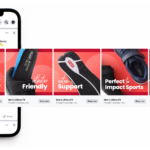Ranking high on search engines requires more than just using the right keywords and creating compelling content. Website security is a key ranking factor on search engines like Google.
Simply put, a secure website doesn’t just protect your users. It also improves your SEO performance.
Here is your guide on strengthening your website’s security – and in turn, find your site at the top of the search engine.
1. Make HTTPS Non-Negotiable
HTTPS is a must. Google treats HTTPS as a ranking signal, and browsers like Chrome and Firefox actively flag sites without HTTPS as “Not Secure.” That visual cue can immediately erode user trust, leading to higher bounce rates – which, of course, negatively impacts your rankings.
Ensure your website uses SSL/TLS certificates to maintain HTTPS. Not only does it encrypt your users’ data and make them feel safe, but it also gives you a competitive edge in the search results.
2. Focus on Core Web Vitals
In 2021, Google rolled out Core Web Vitals as part of its ranking factors. These metrics – Largest Contentful Paint (LCP), First Input Delay (FID), and Cumulative Layout Shift (CLS) – measure your site’s performance and user experience. Securing your site helps indirectly with these factors by ensuring quick load times, stable page layouts, and smooth interactivity.
A secure website that loads fast and has a great user experience is far more likely to rank higher than a slow, clunky, or untrustworthy site.
3. Mobile Security Matters
We live in a mobile-first world. Mobile users are vulnerable to malware, phishing, and other attacks. A website that offers poor mobile security risks not only user trust but also losing SEO ground.
Ensure your website security, like encryption and secure authentication, extends to mobile users. Google’s mobile-first indexing means your mobile security can directly affect your overall SEO rankings.
4. Prioritize Data Privacy
Compliance with data privacy laws like GDPR, CCPA, and other regulations doesn’t just protect your users – it also boosts your SEO. Websites that transparently collect and handle user data are viewed more favorably by users and search engines alike.
Make sure you’re following all data privacy regulations, and don’t forget to clearly display your privacy policy. A secure website that respects privacy helps build trust, which Google rewards with higher rankings.
5. Guard Against Cyber Threats
Cyber threats are getting sneaky, and no less malicious. Ransomware, DDoS attacks, and zero-day vulnerabilities can bring your website down, leaving it vulnerable to hackers.
Beyond the obvious security risks, this can also devastate your SEO. Hacked websites often get blacklisted by Google, resulting in significant drops in traffic and rankings.
By implementing advanced cybersecurity measures – like firewalls, intrusion detection, and encryption – you can protect your website from attacks, keeping it secure and performing well in search rankings.
6. Use Multi-Factor Authentication (MFA)
A powerful way to prevent unauthorized access to your site is by using multi-factor authentication (MFA). This adds an extra layer of protection beyond just passwords, safeguarding your admin login areas and reducing the risk of attacks that could result in SEO penalties.
With MFA, even if someone obtains login credentials, they’ll still need another form of verification, making it much harder to compromise your site.
We broke this down with our very own Paul Miller in our Proof Point podcast episode: Your Guide to Online Security. You’ll also get key cybersecurity practices you can implement now. Take a listen:
7. User Trust Equals SEO Success
In the past, security helped indirectly improve user trust. But now, search engines view user trust as a more direct ranking signal. If users trust your website, they are more likely to stay longer, engage more, and return – all behaviors that boost your SEO.
From HTTPS to visible security badges and privacy-compliant data handling, a secure site establishes trust with visitors, keeping them on your pages longer and signaling to Google that your website is authoritative and worth ranking.
8. Don’t Ignore Zero-Day Vulnerabilities
One growing security concern is zero-day vulnerabilities. These are security flaws in software that are unknown to developers. These vulnerabilities can be exploited quickly by attackers, leading to downtime or breaches that severely damage your SEO performance.
To mitigate this, regularly patch your CMS, plugins, and themes. Staying on top of updates ensures that your website is always protected from emerging threats.
Security and SEO Are A Winning Combination
You don’t want your secure information compromised – and search engines don’t want that for you either. That’s why secure websites and search engine optimization go hand in hand.
From improving user trust to safeguarding your site against attacks, the steps you take to secure your website can have a direct impact on your rankings and visibility. By prioritizing security measures like HTTPS, multi-factor authentication, and regular updates, you’re positioning your business for long-term success in a digital world that increasingly values privacy, speed, and trust.
Don’t let security gaps hurt your SEO efforts or compromise your business. Here at Proof Digital, we specialize in comprehensive website security services that safeguard your site and improve its SEO performance.
Is your site secure? Reach out to us to learn how we can help secure your website and boost your rankings. Let’s make sure your website is both safe and seen.
Related Articles
- Top 5 Web Security Tips
- Digital Fortresses: Your Guide to Online Security
- Warning! Google Gemini AI Chatbot Has Security Risks
- 7 Tips to Tactically Avert Cybersecurity Threats
- Hosting, Maintenance, and Security
- Don’t tell your AI anything personal, Google warns in new Gemini privacy notice
- Top Digital Tips for 2024
- Google Issues Serious New Warning For All Android And iPhone Users
- Let’s Talk
















